 |   | |
| European Climate Adaptation Newsletter | Issue March 1, 2023 | |
EU policy and EEA activities | Climate and Health Observatory|Climate-ADAPT | Research and assessments | Transnational, national and local | Events | Subscribe | ||
| EU policies and EEA activities | |||
1. EU Member States make progress in climate adaptation to boost resilience, EEA review finds EU Member States recognise the importance of adapting to impacts of heatwaves, droughts, floods, heavy precipitation and changing temperatures and mainstreaming climate change adaptation to a wide range of affected areas like agriculture or water and disaster risk management. These are key findings of a recently published European Environment Agency (EEA) report, which assesses the state of national adaptation actions in 2021. << Read more |  © Water PIX/EEA | ||
2. European Climate Risk Assessment The Directorate-General for Climate Action of the European Commission (DG CLIMA) and the EEA initiated the preparation of the first European Climate Risk Assessment (EUCRA). It aims to assess current and future climate change impacts and risks relating to Europe’s environment, economy, and wider society. The assessment will focus on complex climate risks such as cross-border, cascading and compound risks. << Read more |  © Igor Popovic, Climate Change PIX/EEA | |
3. Horizon Europe funding and tender opportunities for 2023. Deadline 18. April 2023 The Horizon Europe Framework Programme has opened several calls for proposals on climate adaptation for 2023. Climate sciences and responses (HORIZON-CL5-2023-D1-01). Deadline date: 18 April 2023, 17:00:00 Brussels time. For Climate sciences and responses, 107.5 M EUR are available for 11 topics. << Read more |  © European Commission | |
4. Funding opportunities to support research projects on adaptation to climate change are open Three calls under the Horizon Europe Work Programme 2023 are open, which will contribute to implementing the EU Mission on Adaptation to Climate Change. The calls will close on 20 September 2023. In addition, two joint calls with other EU Missions were launched, closing respectively on 27 April and 20 September 2023. << Read more
|  © European Commission | |
5. European Union disaster resilience goals The European Commission has developed, together with Member States, five Union disaster resilience goals to steer future work on disaster prevention and preparedness. These goals point to strategic areas where Member States and the Commission need to work together to strengthen our collective capacity to withstand future disasters (including extreme weather events), protect citizens, and safeguard livelihoods, and the environment. << Read more |  © European Union | |
6. Implementing the Green Deal: Commission launches Climate Resilience Dialogue The European Commission launched the Climate Resilience Dialogue, as announced in its Strategy for Financing the Transition to a Sustainable Economy and the new EU Strategy on Adaptation to Climate Change. The first dialogue meeting brought together insurers, reinsurers, the corporate sector, consumers, public authorities and other stakeholders to exchange views and best practices to address the losses incurred from climate-related disasters. << Read more | 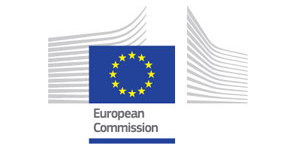 © European Commission | |
7. Dashboard on insurance protection gap for natural catastrophes, including climate-related events The European Insurance and Occupational Pensions Authority (EIOPA) has released its dashboard, mapping the insurance protection gap for natural disasters across Europe. The tool presents the drivers of the climate-related insurance protection gap. In addition, it aims to identify measures to help reduce society’s losses in the event of natural catastrophes in Europe. << Read more |  © Cesare Barillà, Climate Change PIX/EEA | |
8. New European Bauhaus Progress Report Two years after its launch, the New European Bauhaus (NEB) has become a catalyst for the European Green Deal transformation. The Progress Report highlights the initiative's achievements in its first two years. In addition, the document introduces the NEB Compass assessment tool for projects that embody the NEB approach of sustainability, inclusion, and beauty, as well as the NEB Dashboard database in the form of an interactive map. << Read more |  © New European Bauhaus | |
9. The Community of Practice of the Mission Adaptation to Climate Changes is launched On 26 January 2023, around 200 regions and local authorities participated in the Launch of the Community of Practice of the Mission Adaptation to network and share experience on implementing adaptation measures at the regional and local levels. << Read more |  © European Commission | |
10. The Bigger Picture: how the climate and biodiversity are intimately linked, and what the EU is doing to protect them both The European Union (EU) has had considerable success funding local projects in Europe and worldwide towards global climate action and biodiversity protection efforts. However, urgent large-scale action is still needed to prevent countless plants and species from going extinct and ultimately avoid irreversible disruption of our ecosystems, with potentially negative consequences for climate change. << Read more |  © Antonio Tedim, Well with Nature/EEA | |
| European Climate and Health Observatory | ||
11. New EEA report ‘Climate change impacts on health in Europe: heat and infectious diseases’ out The new EEA report ‘Climate change as a threat to health and well-being in Europe: focus on heat and infectious diseases’ provides evidence and outlooks on the health threats caused by heatwaves and climate-sensitive diseases is published. << Read more |  © Jonas Persson, Environment & Me/EEA | |
12. New indicators available in the European Climate and Health Observatory The European Climate and Health Observatory now offers more indicators related to health impacts of climate-sensitive infectious diseases, heat and pollen (developed by the Lancet Countdown Europe).In addition, it has updated existing indicators with recent data. << Read more |  © EEA | |
13. Open horizon Europe calls for Climate-Health The recently adopted Horizon Europe Work Programme 2023-2024 includes calls for Research & Innovation activities, co-funded partnerships (COFUND) and Coordination and Support Actions (CSAs). The Health cluster is divided into six Destinations, focusing on a broad range of areas of importance for the future of health. Several clusters have open calls that are relevant to the climate-health nexus. << Read more | 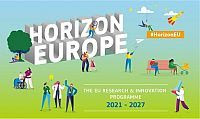 © European Commission | |
14. Wellcome Trust funding opportunity for climate-health related projects The Wellcome Trust funding scheme "Climate Impacts Awards" is funding transdisciplinary teams to deliver short-term, high-impact projects about the impacts of climate change on physical or mental health. Projects should combine evidence generation with communications and/or public engagement to make the health impacts of climate change visible and drive climate policy. << Read more |  © Wellcome Trust | |
15. New work plan for the European Climate and Health Observatory published The Work Plan describes the upcoming work of the Observatory partners in 2023-2024. The plan contains three main pillars: i) new work focusing on the water-climate-health nexus; ii) continuation of work on heat and climate-sensitive infectious diseases; iii) work on climate and health literacy. << Read more | 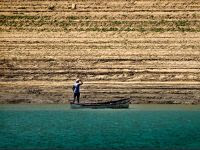 © Gurhan Sahin - Flickr.com | |
16. European Climate and Health Observatory welcomes new partner ASPHER The Observatory welcomes a new partner: ASPHER, the Association of Schools of Public Health in the European Region. ASPHER is the key independent European organisation dedicated to improving and protecting public health by strengthening the education and training of public health professionals for both practice and research. In addition, ASPHER will contribute to strengthen the Observatory in the area of Climate and Health Literacy. << Read more |  © ASPHER | |
| Climate-ADAPT – new features | ||
17. New case study on adaptation in the agriculture sector Based on the LIFE VIVaCCAdapt project, this new case study from Slovenia applied a newly developed Decision Support System for Irrigation (DSSI) to deliver climate change adaptation measures, comprising timely and efficient irrigation to crops. Using this decision support system helps increase both the climate change resilience of agriculture in the valley and to contributes to climate change mitigation. << Read more |  © Slovenia Regional Development Agency | |
| Research and assessments | ||
18. 6th European Climate Change Conference (ECCA2023): Calls are open for activities until 10 March 2023 Europe’s influential climate adaptation conference, ECCA2023, takes place from 19 to 21 June 2023, and will be held in Dublin, Ireland. It has opened its call for contributions to share climate adaptation solutions and challenges, content proposals, posters, and creative arts. The deadline to submit applications is on Friday, 10 March, 2023 before 23:59 (CET). << Read more | 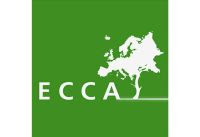 © European Union | |
19. The European Marine Observation and Data Network (EMODnet) launches its fully unified marine data service The European Marine Observation and Data Network (EMODnet) launched its fully unified marine data service, integrating all the data into one single portal. Rapid access to reliable and accurate data and information is vital in addressing threats to the marine environment, developing policies and legislation to protect vulnerable areas of our coasts and oceans, understanding trends, and forecasting future changes. Furthermore, this portal contributes to international and European efforts on adaptation to climate change. << Read more |  © European Commission | |
20. Will more frequent river floods cause widespread malfunction of European road networks? A new study on “Flood risk assessment of the European road network” has been released. It investigates whether the potential level of a disruptive impact on the road networks of European countries could reach a socio-economic tipping point, with an abrupt and large loss of road network function. This research applies statistical analysis to large-scale flooding events in Europe and aims to inform climate adaptation policy. << Read more | 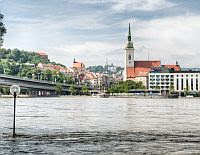 © Karol Czinege - Pexels.com | |
21. Facing increasing river flood risk in Europe: adaptation measures can save lives and billions of euro Flood adaptation strategies are needed to face the increased intensity and probability of floods in most parts of Europe due to global warming. A new paper co-developed by scientists from the Joint Research Centre (JRC) of the European Commission and published in Nature Climate Change compares the costs and benefits of flood risk reduction measures in Europe. The study shows that flood adaptation can be highly cost-effective and is crucial to offset rising river flood risk in Europe with climate change. << Read more |  © Christian Jung - Unsplash.com | |
22. The European Climate, Infrastructure and Environment Executive Agency (CINEA) launches a new public dashboard covering all of its projects and programmes The European Climate, Infrastructure and Environment Executive Agency (CINEA) has launched its online public dashboard bringing together all the programmes entrusted to it by the European Commission. The dashboard will allow everyone to find up-to-date information about the projects supported in each programme, cross-reference them and extract data for potential re-use. << Read more |  © European Commission | |
23. Climate Talks - How to adapt to climate change in nature Protected Areas? Climate Talks is a five-part documentary that aims at better understanding what it takes to help adapt nature to climate change and how to use nature-based solutions for adaptation. They discover the experience developed by nature conservation professionals in and around Nature Protected Areas across Europe. << Read more | 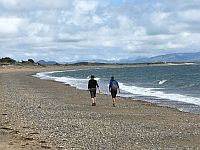 © Marije Bedaux | |
24. When will a 2-meter rise in sea level occur, and how might we adapt? In a joint policy brief, the EU-funded H2020 projects PROTECT, CoCliCo and SCORE projects identify actions that are urgently needed to limit losses and damages, as coastal adaptation is an ongoing process that involves short-term actions, long-term planning and strategic thinking. << Read more |  © Anthony Sejourne/Getty Images | |
| Transnational, national and local activities | ||
25. New brochure to further climate-neutral and resilient living in the Alps The Alpine Climate Board of the Alpine Convention released a new brochure, “Closing the gap on climate action”. The publication showcases Alpine initiatives that build new “rope teams” to support climate-neutral and resilient living in the Alps. It presents concrete, Alpine-specific good practice examples for climate action in four areas (mobility, consumption, buildings, and culture). | 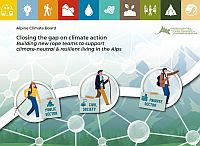 © Alpine Climate Board of the Alpine Convention | |
26. Great opportunities, but also challenges, for NBS in the Nordics The new report "Working with Nature-Based Solutions: Synthesis and mapping of status in the Nordics" provides an overview of the status of Nature-based Solutions, including research, political frameworks, challenges and examples of implemented projects in the Nordics. << Read more |  © S-ituation project | |
27. Guide for Local Climate Change Adaptation Planning in the Baltic Sea Region The “Guide for Local Climate Change Adaptation Planning in the Baltic Sea Region” will help local governments and communities take initial action to create a safe, socially, and economically secure and sustainable society that is resilient to current and future impacts of climate change. The guidelines for preparing and drafting the climate change adaptation plan for local governments in the Baltic Sea Region (BSR) were prepared as the output of the Climate Mainstreaming Locally in the Baltic Sea Region (CliMaLoc) project. << Read more |  © Josh Hild - Unsplash.com | |
28. Nature-based solutions: A tool for climate adaptation and other societal challenges The Swedish Environmental Protection Agency has published the report “Nature-based solutions: A tool for climate adaptation and other societal challenges”. The report disseminates knowledge and information about nature-based solutions. It offers guidance on how NbS can be planned and implemented to meet the challenges of a changing climate while promoting sustainable development through increased resilience and reduced vulnerability. << Read more |  © Timo Persson | |
29. The Greek National Adaptation Hub is now available online Greece has recently released its National Adaptation Hub. The Hub intends to provide tools and resources for assisting decision-makers, raise awareness of adaptation, and promote sharing of good practices among key adaptation stakeholders. The Hub has been developed in the framework of the LIFE-IP AdaptInGR project. << Read more |  © adaptivgreece | |
30. Hungarian national adaptation platform substantially upgraded The Hungarian national Adaptation GeoInformation System (NAGiS) was substantially enlarged since its first development phase. It now provides access to a Local Adaptation Decision-support Application and to a Settlement-level Adaptation Barometer for assessing adaptation needs at the settlement level. In addition, it offers numerous guidelines, such as a methodology for a complex vulnerability assessment and solutions for adaptation in selected policy sectors, such as on adaptation in Hungarian tourist destinations. Shortly the macro-regional extension of the system is planned. << Read more |  © Hungary National Adaptation Geo-information System (NAGiS) | |
| Events |
<< Read more
<< Read more
|




























































